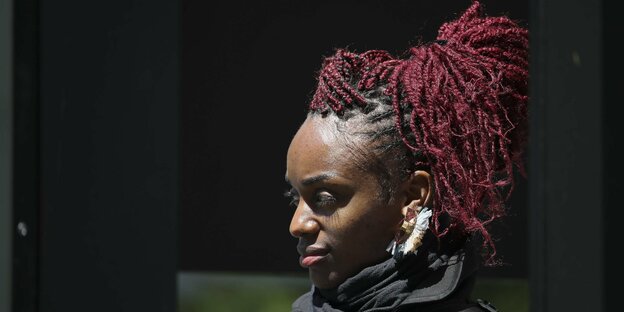A legislative initiative prohibits discrimination against people because of their hairstyle or haircut. There are examples, often in the workplace.

Perfectly designed to work with Red Rasta. Photo: Jürgen Hasenkopf/imago
PARIS taz | Some comments are likely to make derisive references to “many hairs standing on end” or an “implausible” debate. But discrimination based on hairstyle, hair color and a certain haircut is a serious problem that worries even the French parliament. In its first reading on Thursday, the French National Assembly approved a law that criminalizes discrimination against people because of their hairstyle.
The initiator of the debate and the motion was the deputy Olivier Serva of the Antilles department of Guadeloupe. He mentions “hairy” discrimination in the workplace: for curly hair, dreadlocks or the “afro look,” which especially affects black people. Even redheads or bald people are sometimes viewed with suspicion.
Especially women with curls are repeatedly recommended to straighten their hair in order to have a seemingly professional and desirable image when dealing with clients. However, this is also very dangerous for health reasons. Because women who used these chemicals to straighten their hair had, among other possible side effects, a three-fold increased risk of suffering from uterine cancer.
There are currently no statistics on the extent of this discrimination in France. Civil rights advocate Claire Hédon estimates that hair-related complaints make up about 2 percent of all complaints she receives. But there are concrete examples.
Experiences at the reception.
Kenza Bel Kendil, speaking to the public radio and television station FranceInfo, demonstrates this with her own experience: “I have very curly hair, which I sometimes put up at the top and wear open below. I was working at the reception of a hotel in Nîmes when the manager told me: 'Either you go home and change your hair, or you don't come to work anymore.'
In another case, school administration informed the parents of a four-year-old boy that their son's “afro appearance” appeared “dirty and unkempt.” MP Serva is also aware of a survey in Britain in which one in three blonde women said that she would have to dye or tone her hair if she wanted to advance her career.
Employers who harass their employees because of the color or length of their hair or the way they wear it should now – as in the case of discrimination based on origin, religion, gender, sexual orientation or age – face explicit sanctions.
The Minister of Gender Equality, Aurore Bergé, highlighted during the debate that the existing legislation is already formulated broadly enough to also cover discrimination or insults due to hairstyle. However, she considers it positive that the debate on the bill, approved by 42 votes to 2 and sent to the Senate for debate, is bringing this particular form of discrimination to public light.